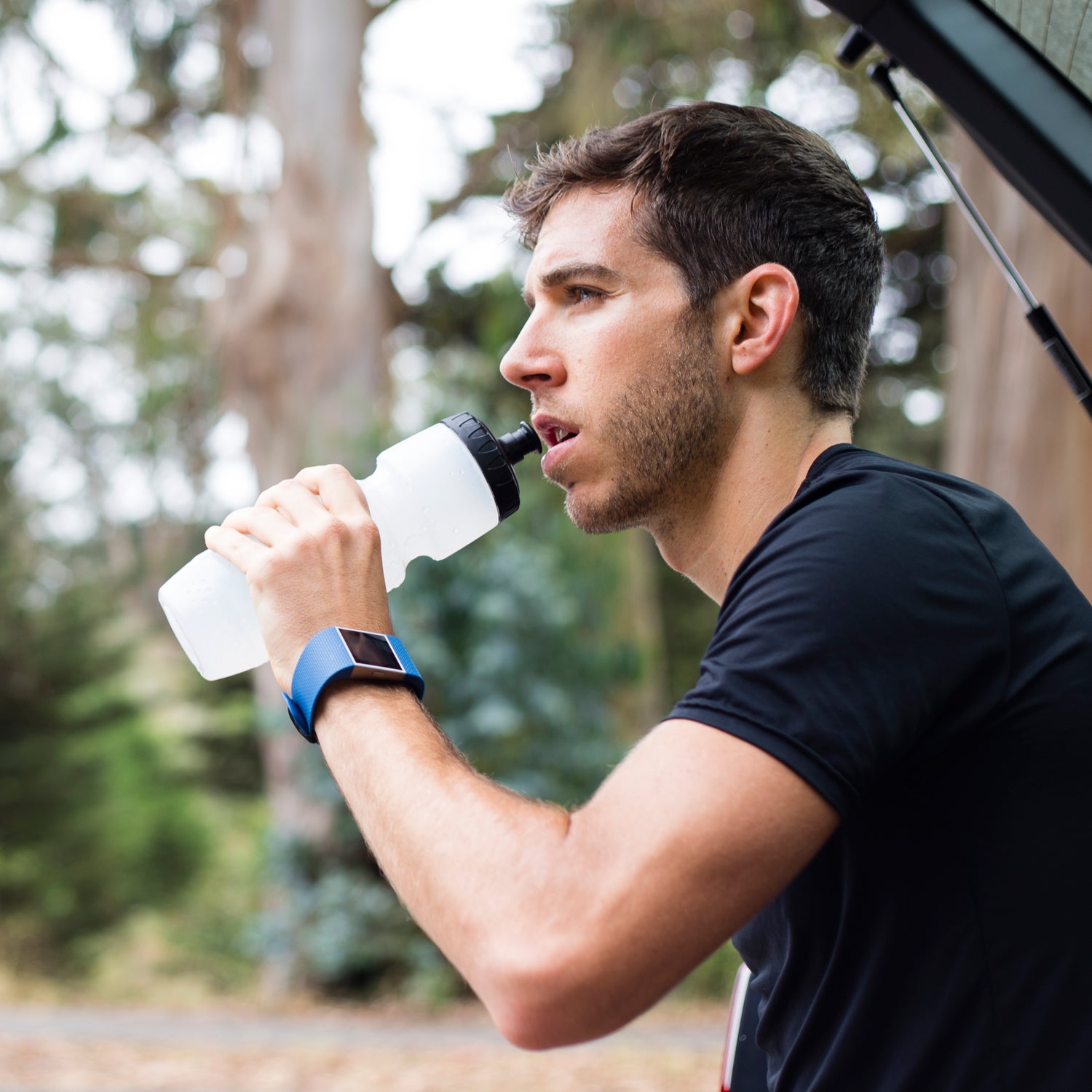If you’re sitting down while reading this, you might want to stand up and pace the room. The next wave of wearables has nothing to do with tech upgrades. This time, it’s about insurance companies that want you to be more active.
That’s the goal of , founded in October 2013. Last week, it began offering a free Misfit Flash to each of its 17,000 members. Oscar is a conventional insurer in the sense that it relies on a large risk pool to spread costs, but it’s unconventional in several small ways. For example, the company is able to attract customers because, thanks to the Affordable Care Act, New York now has a very competitive health insurance exchange that allows customers to shop around more than they have in the past. (Oscar started in New York and has just expanded to New Jersey, with more states on the way.)
The company’s mission is to think differently about insurance, says Mario Schlosser, Oscar’s co-founder. Some evidence of this: It’s backed by Josh Kushner, who has funded other cutting-edge companies such as Spotify, Warby Parker, and Instagram.
And, yes, a touchstone of this new brand of more user-friendly insurance is wearables. In Oscar’s case, the bespoke Flash has its own branded look and syncs with the Oscar app. In turn, the app allows users to run symptom and diagnostic searches on their phones, and then shop around for the best in-network practitioners.
Oscar believes in the carrot, not the stick. The company encourages members to track daily activity: Each daily goal is worth a buck toward an Amazon gift card, paid out in $20 intervals, with a max annual payout of $240.
According to Schlosser, this is just the beginning. “We have a team of doctors and nurses in-house, and we really want to get biometrics data,” he says. This means eventually connecting fitness, health, and diet information and sharing it between providers and patients.
Theoretically, tracking this data should lead to better behavior and a more complete view of general patient health, lowering insurance premiums for everyone. In the future, the tech might show a member’s spikes in blood pressure or blood sugar, potentially heading off an emergency hospital visit. And because Oscar members get 24/7 phone access to a physician (via the app), and because the app shares their trackable health data with the physician, both doctor and patient should have an easier time preventing illness and injury.
Granted, most of us are reluctant to give up our privacy when it comes to health care, says Vaughn Kauffman, an analyst at PricewaterhouseCoopers, which studies the insurance business. “Privacy is today’s currency,” he says. Insurers will be able to barter for the data as long as it’s anonymous. When it isn’t, he says the member should have full control over who sees the information—your primary care physician or dietician, for example.
This all sounds pretty good, right? But could laggardly behavior lead to higher premiums, the same way that car insurance companies will jack your rates if you have an accident?
Safeway has a that rewards employees for exercising, but it also penalizes people with measurable health risk factors, such as diabetes, high blood pressure, and obesity. According to the company, its measures have proven effective: Safeway employees’ obesity and smoking rates were roughly 70 percent of the national average in 2009. Penn State initially floated a for not meeting health expectations. (The university after a wave of protests from staff and faculty.)
There are two key reasons why Kauffman at least isn’t too worried about the rise of a stick model—yet. For one, there’s the psychological reinforcement of wanting to meet daily goals. (If you already use a wearable, you’ve experienced this phenomenon firsthand.) And thanks to Obamacare, because the cost of switching providers is effectively zero, an insurer that overly penalizes you for putting on some pounds during the holidays will get coal in its stocking come the next open enrollment period. Competition, in other words, has a way of weeding out nasty behavior. Finally, while penalizing bad behavior might be effective, public support for the measure is still low: Only for the obese.
That isn’t to say this won’t change in the next two years, or even the next six months. As the technology advances, companies may be tempted to take a page from the automative insurers’ book, charging more for obesity or setting fitness benchmarks that everyone must hit—or else.
As for the rise of wearables, Oscar isn’t the only insurance company in this space. UnitedHealth, Humana, Cigna, and Highmark all have subprograms that encourage wearable participation. HumanaVitality is a program similar to Oscar’s where members get points toward Walmart gift cards; tracking is synced from wearables to the insurer’s app via Android’s Wear and Apple’s Health.
Connecting tracking tech to a physician is not the exclusive domain of insurers. Apple has teamed up with an that’s deploying a model similar to Oscar’s, and this might be where the revolution happens.
Amwell (in iOS 8 iPhones), which includes charted health info. You can ping a doctor for a FaceTime chat for real-time medical advice. (FaceTime enables practitioners to watch a self-exam, in case you have a rash or other visible symptom.) Because you control permissions within Health, there’s more potential to share precise data with the physician—not your insurer. The Amwell model will also accept a credit card payment, although some insurers will cover the virtual care, but that doesn’t mean they’ll have access to your tracked data.
Yes, all of this is getting a bit Orwellian. Kauffman, however, argues that doctors have had access to our data—and passed it all over the place via fax or by hand—for decades. Now there’s the potential for societal benefit, with a great deal of information about the entire nation’s health. The hope is that this leads to everyone getting better, more accurate care.


